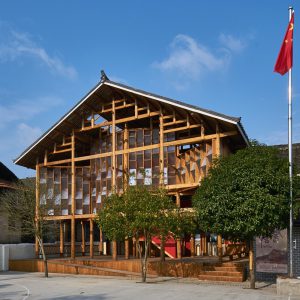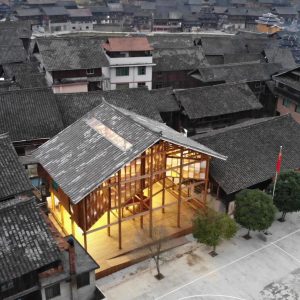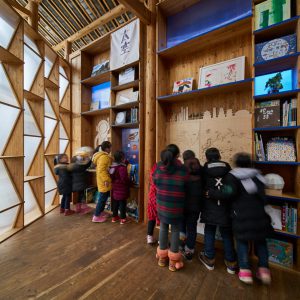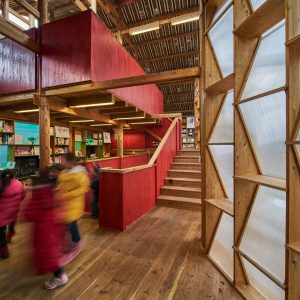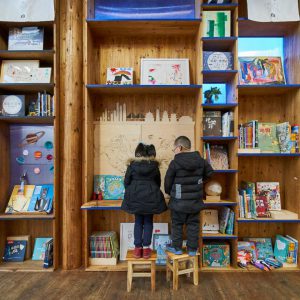Opened in December 2018, the Gaobu Book House is a children’s library located in a Dong minority village, Gaobu, in Hunan Province, devised to cultivate children’s interest in reading books while interacting with peers. It is designed and built over five years by Prof. Peter W. Ferretto and his team at the Condition_Lab, together with Prof. Cai Ling and her team at the College of Architecture and Urban Planning of Guangzhou University, as well as local villagers in Gaobu.
Like many other rural villages in China, Gaobu is challenged by the so-called “village hollowing” in which the working-age population migrate. Most children within Gaobu are raised by their grandparents until the age of 10 when they are forced to leave and study in nearby towns. Due to the lack of educational facilities such as libraries, children in Gaobu spend most of their leisure time online rather than reading. Hence, Prof. Ferretto and his team had an idea to build an educational incubator for children to read and learn through playing.
With the objectives to preserve Dong’s architectural traditions and re-energise the rural community in Gaobu, the team adopted the traditional Dong house “Ganlan” style as the creative starting point for the 200m² two-story Book House, using local timber and with the help of local workers. Having witnessed how stairs become a key architectural element in Dong daily life, the team decided that a central staircase would act both as a means of circulation and as the identity for the building. The ground floor is conceived as a covered open space for public gatherings and local exhibitions, while each wall of the house above is dedicated to a specific educational theme with shelves of books.
The Gaobu Book House demonstrates how traditional architectural elements and methods can be used creatively to make a real difference in improving rural communities, delivering a new paradigm for participatory architecture. The project has received the “Completed Buildings – Civic and Community” category award at the World Architecture Festival 2019, as well as a Bronze Award in the DFA Design for Asia Awards and the WA Award (31st Cycle).
- Peter Ferretto (Condition_Lab) – Gaobu Book House
- Peter Ferretto (Condition_Lab) – Gaobu Book House
- Gaobu Book House (interior view)
- Gaobu Book House (interior view)
- Gaobu Book House (interior view)
